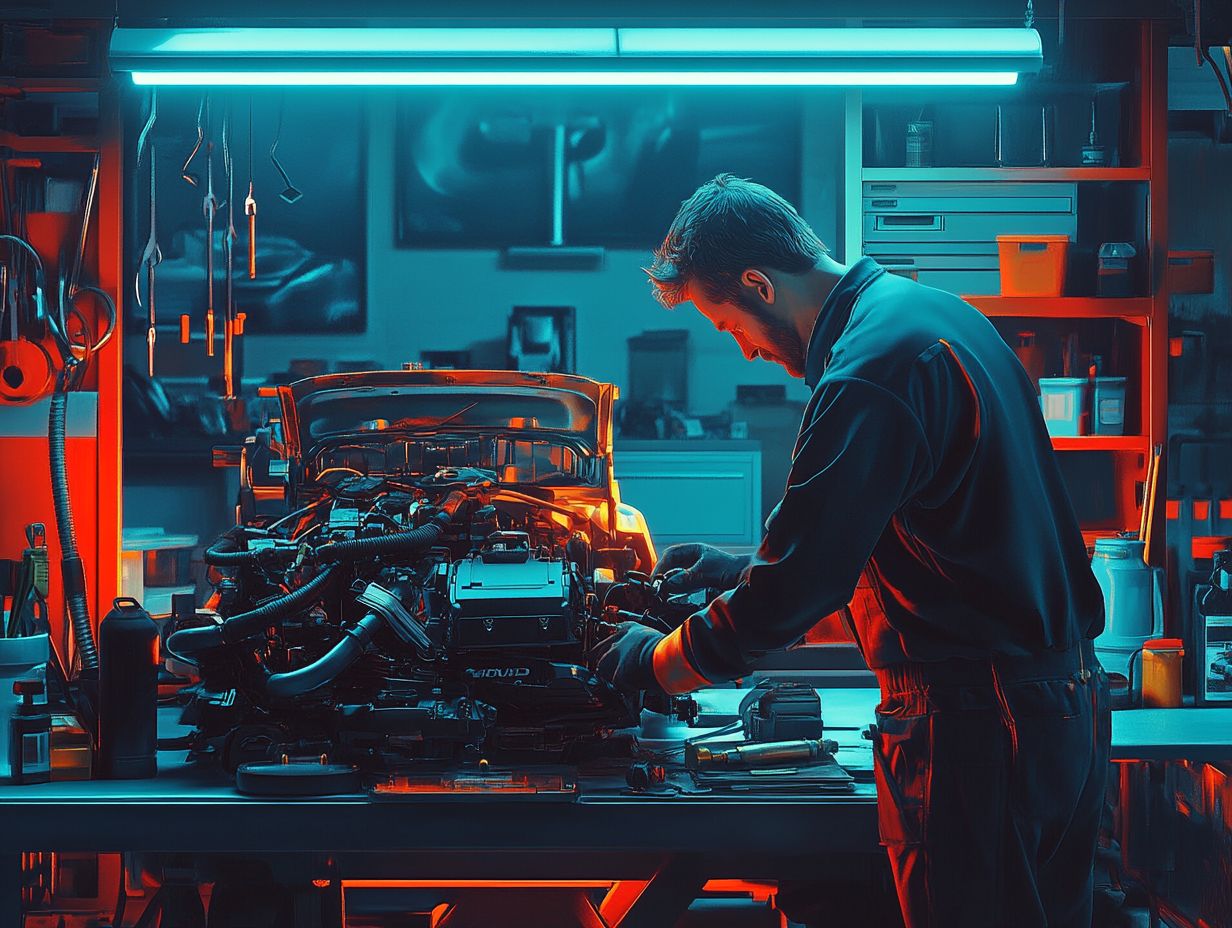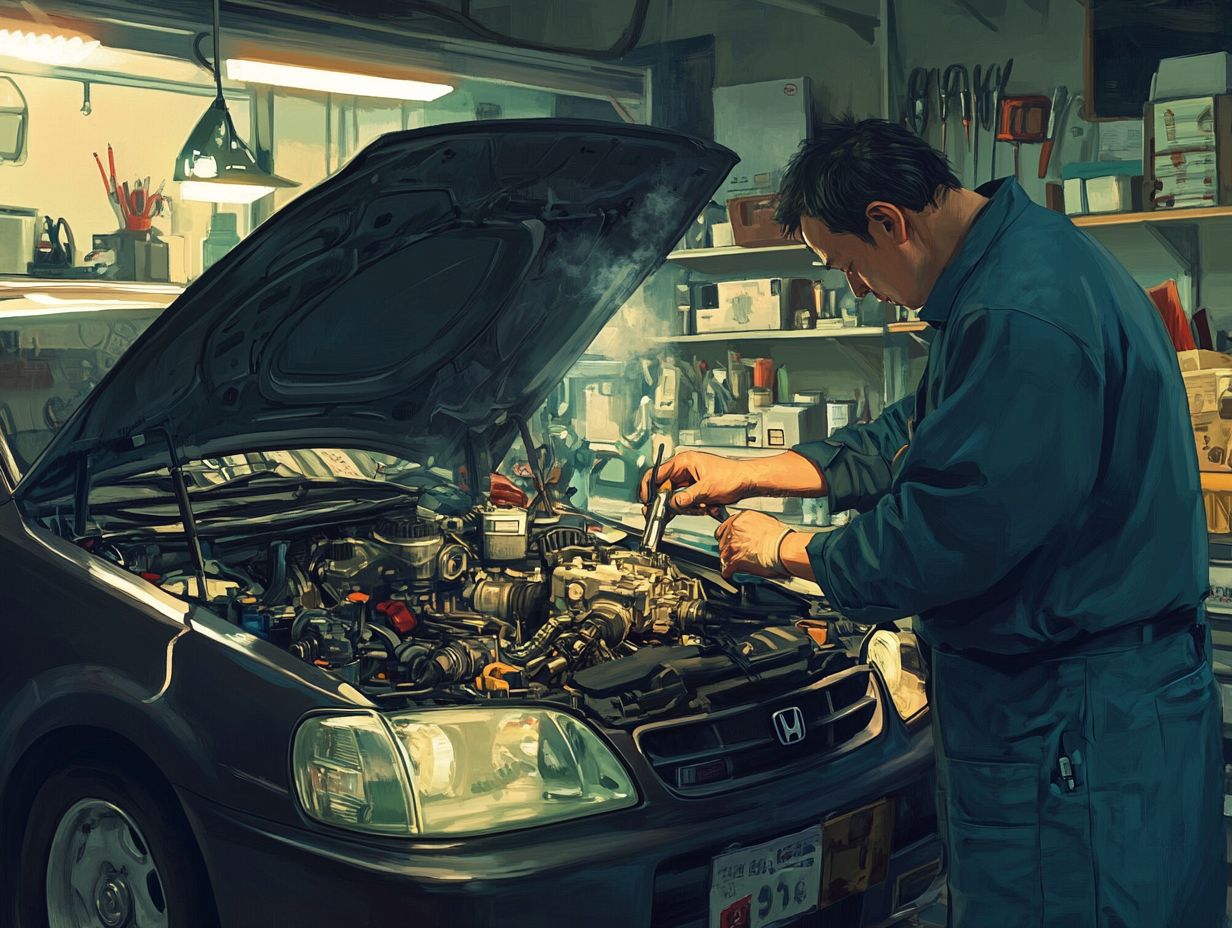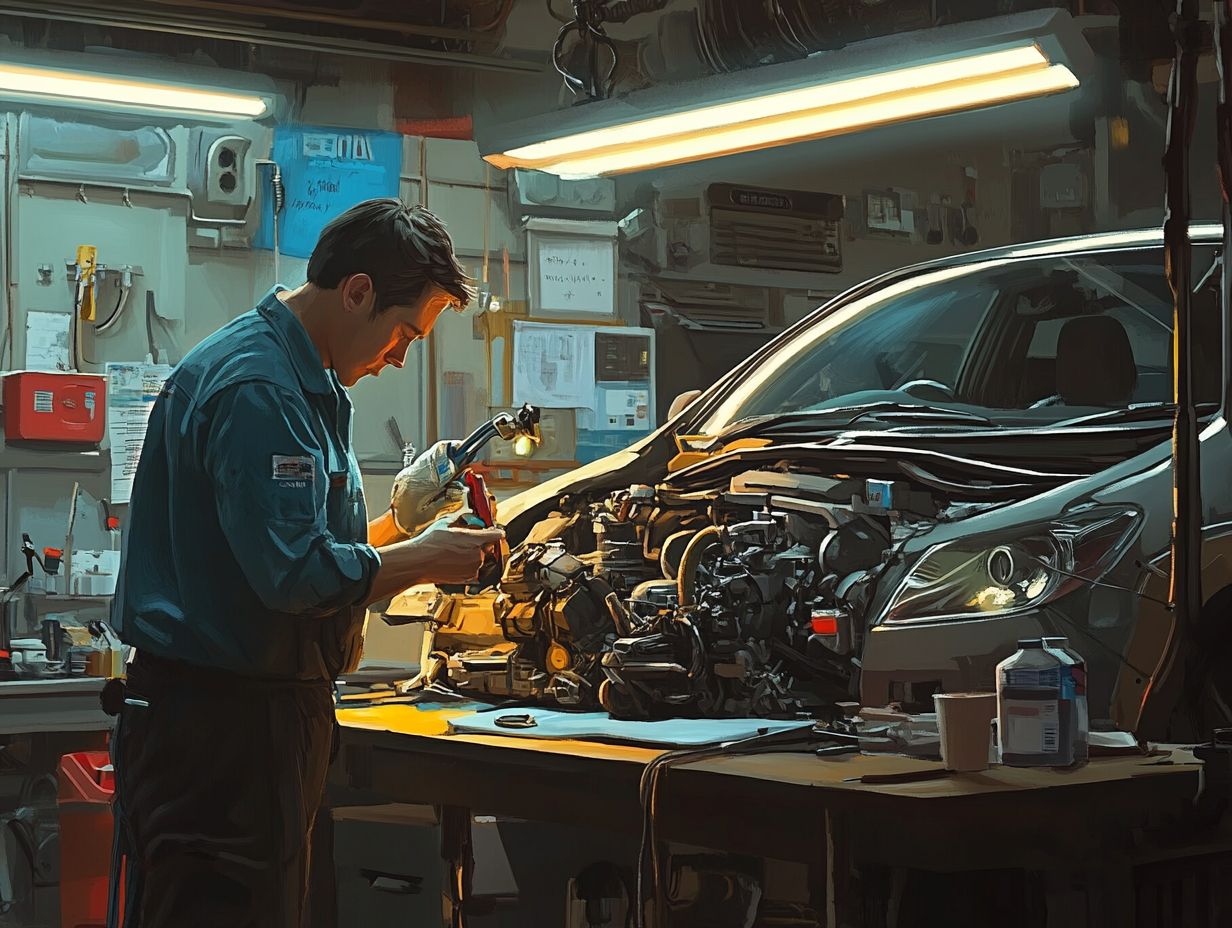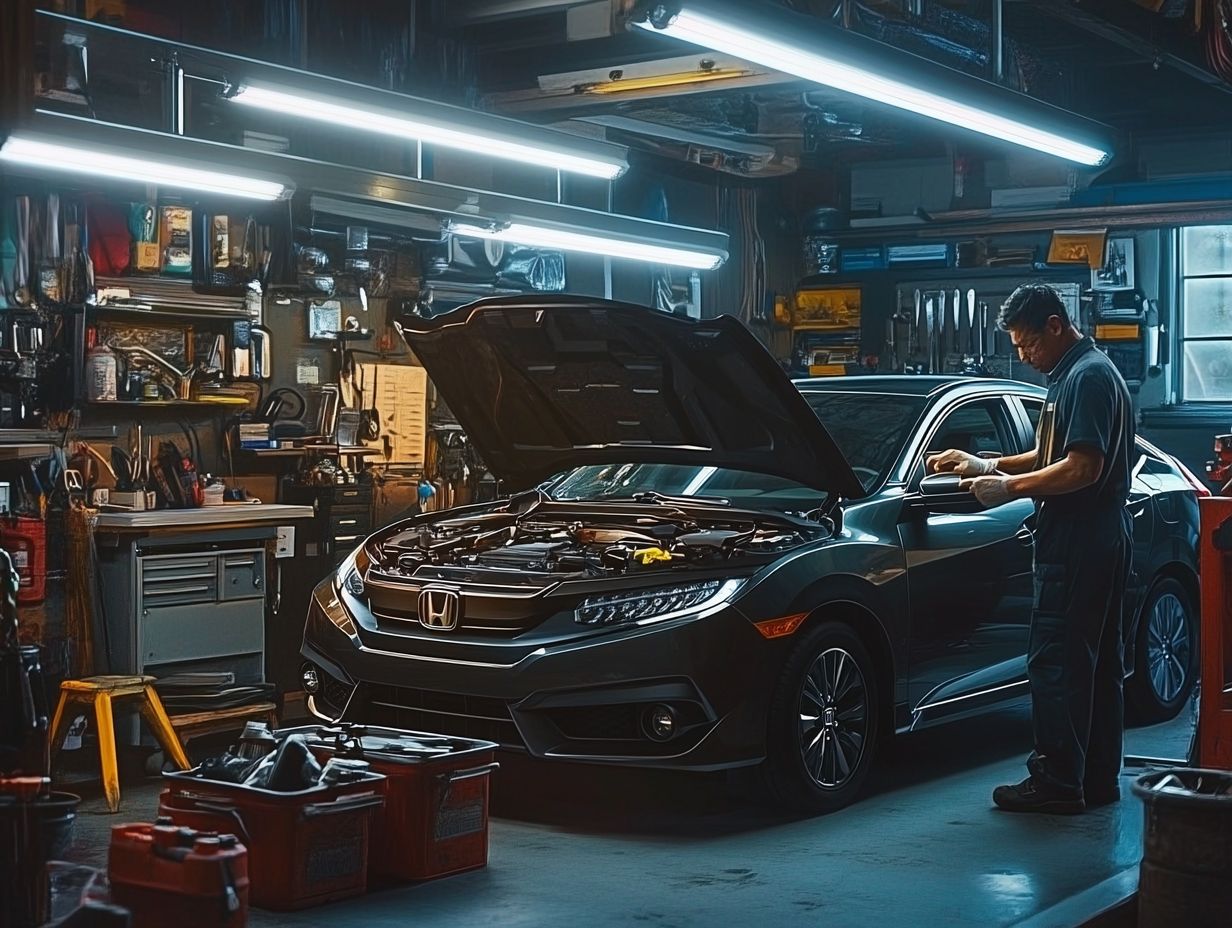Are Hondas Expensive to Repair?
When I think about owning a Honda, I often find myself wondering about the repair costs that might pop up over time. There are quite a few factors that come into play, like the model and year of my car, as well as how much damage might need fixing.
I’ll dive into some common repairs and their typical costs, share tips on how to save a few bucks with DIY projects or warranty options, and talk about the long-term costs considering Honda’s reputation for reliability.
Whether I’m a seasoned Honda owner or just considering making a purchase, getting a grasp on these details helps me make informed decisions about keeping my vehicle in tip-top shape.
Factors Affecting Repair Costs for Hondas

When I think about what affects repair costs for Hondas, I realize there are several key things to keep in mind:
- the model and year of my vehicle
- how much damage or repair is needed
- parts availability
- labor rates
- my car’s overall maintenance history
Each of these factors really impacts how much I might end up spending on repairs, insurance premiums, and servicing over time. Even though Hondas are known for their reliability, they can still rack up some hefty repair bills depending on various variables.
It’s definitely helpful to be aware of these factors so I can plan my budget for all my automotive needs.
Model and Year of the Honda
The model and year of my Honda really affect the repair costs I’ll face over the life of my car, especially with popular models like the Honda Civic, Accord, and CR-V, each bringing its own unique set of repair histories and needs.
For example, I’ve noticed that Civics from the late 2000s often need regular brake pad replacements, which usually run about $150 to $300, depending on where I go. On the flip side, I’ve heard that older Accords can have some serious issues with transmission failures, leading to repair bills that can top $3,000. Ouch!
But then there’s the Honda CR-V, which is known for its reliability. I’ve seen that it tends to need fewer repairs, and many owners rave about its longevity—over 75% of CR-V drivers in surveys report having minimal maintenance issues in those first five years.
This focus on reliability means that even if repair costs vary by model, many Hondas offer overall value that often overshadows those initial expenses.
Extent of Damage or Repair Needed
The extent of damage or repair needed on my Honda can really impact my overall maintenance costs, whether it’s engine issues, transmission troubles, or those routine brake repairs.
This variability really emphasizes why it’s important to understand the specific services my car needs for optimal performance. Take brake pad replacements, for example; they might seem pretty straightforward, but if the rotors and calipers are also shot, the costs can skyrocket. The same goes for suspension work—if my shock absorbers or struts are worn out, I might need extra parts that’ll add to the final bill.
Doing thorough diagnostic assessments not only helps me pinpoint these various issues but also gives me a clearer idea of what services are essential. This makes it a lot easier for me to budget smartly going forward.
Common Repairs for Hondas
I often find that common repairs for Hondas pop up during regular vehicle servicing. Many owners, like me, are on the lookout for the best options—whether it’s hitting up local repair shops, going to certified service centers, or even tackling some DIY repairs to save a bit of cash.
Typical Maintenance and Replacement Costs

When I plan for the usual maintenance and replacement costs for my Honda, I make sure to take a good look at the service intervals laid out in the maintenance schedule. It covers all the essential tasks, like oil changes, brake pad replacements, and spark plug replacements.
By sticking to these guidelines, I can expect to spend anywhere from $50 to $150 for oil changes and between $300 to $600 for brake pad replacements, depending on where I go. I’ve found that choosing a local mechanic can save me some cash; brake services, for instance, can be a lot cheaper than at a dealership, which tends to charge a premium for labor and parts.
Over time, keeping up with routine maintenance not only helps my car parts last longer but also prevents those costly repairs that come from ignoring small issues. It all adds up to a more reliable and budget-friendly driving experience.
Ways to Save on Honda Repairs
I’ve found that looking for ways to save on Honda repairs can really be a smart move financially. It’s all about weighing the pros and cons of DIY repairs compared to professional services.
Plus, I always keep warranty coverage or extended plans in mind when making my decisions.
DIY vs Professional Repairs
Regarding deciding between DIY repairs and handing things over to a professional for my Honda, it really boils down to my skill set, the specific issue I’m dealing with, and how trustworthy the local mechanics or certified service centers are based on what other owners have experienced.
I get a kick out of tackling basic tasks like oil changes, air filter swaps, and tire rotations. Not only does it feel satisfying, but it also helps keep my maintenance costs down. Plus, with so many online forums and detailed repair manuals at my fingertips, it’s easier than ever to pick up tips and share experiences with others.
While diving into DIY repairs can give me a sense of enablement and a deeper understanding of my car, I have to admit that things can get tricky if a repair doesn’t go as planned. That could end up costing more in the long run. So, weighing all these factors helps me decide whether to roll up my sleeves and take a shot at it or call in a professional mechanic for the job.
Warranty Coverage and Extended Plans
Understanding Honda warranty coverage and the perks of extended plans has really helped me keep my repair costs in check, especially in those early years of ownership when insurance premiums are usually lower and the coverage is pretty solid.
By getting to know the different warranty options out there, I can make smarter choices that fit my driving habits and budget. For example, the manufacturer usually provides a limited warranty that covers major repairs for a set duration or mileage, while extended warranties can add some extra peace of mind by covering components that might wear out over time.
I’ve heard plenty of stories from others about their experiences with warranty claims. Some folks found the process to be a breeze and super helpful, while others faced challenges that made them question whether their extended plans were worth it. These insights can really help anyone considering a purchase weigh the pros and cons effectively.
Long-Term Cost Considerations for Hondas

When I’m looking at the long-term costs of owning a Honda, I make sure to consider things like reliability ratings, ongoing maintenance costs, depreciation rates, and how all of these factors can affect the car’s resale value and my overall expenses.
It really helps me get a clearer picture of what I’m getting into.
Reliability and Maintenance Costs
I’ve noticed that the reliability and maintenance costs tied to Hondas really shine through in customer satisfaction surveys and reliability ratings. That’s why so many car owners gravitate toward these dependable rides.
I often see Honda models racking up high scores from both industry experts and everyday owners. People can’t stop raving about their longevity and how they tend to be easier on the wallet when it comes to upkeep. Take the Honda Accord and Civic, for example; they’ve snagged some pretty impressive reliability ratings, showing that these cars not only hold up over time but also don’t need repairs as often or as expensively.
When I read owner reviews, it’s not just about performance and comfort—they also spotlight how surprisingly affordable maintenance can be. It really seems that these cars offer significant savings in the long run. This kind of positive feedback really highlights the overall satisfaction of those who choose Honda as their go-to vehicle.
Frequently Asked Questions
Are Hondas Expensive to Repair?
No, Hondas are not typically expensive to repair compared to other car brands. They are known for their reliability and low maintenance costs.
What factors contribute to the cost of repairing a Honda?

The cost of repairing a Honda can vary based on the specific model, age of the car, and the type of repair needed. Labor and parts costs can also play a role.
Are Honda parts expensive?
Compared to other car brands, Honda parts are generally affordable. They are widely available and have a reputation for being durable and long-lasting.
Do Hondas have a higher repair cost than other Japanese car brands?
No, Hondas do not have a significantly higher repair cost compared to other Japanese car brands. In fact, they are often praised for their low repair costs.
Is it cheaper to repair a Honda at a dealership or at a local mechanic?
It may be cheaper to repair a Honda at a local mechanic rather than a dealership, as dealership labor rates tend to be higher. However, it is important to research and compare prices before making a decision.
What are some common repairs for Hondas?
Some common repairs for Hondas include routine maintenance such as oil changes and brake replacements, as well as more specialized repairs such as transmission or engine repairs.
